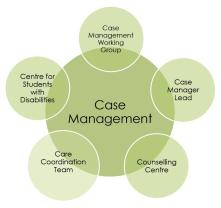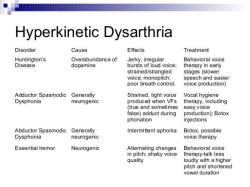What is the holistic health certificate program?
In our fast-paced modern world, many people are searching for more than just symptom treatment; they are seeking true wellness. This search leads them to holistic health—a powerful approach that views health not as the absence of illness, but as a state of deep balance. Holistic health recognizes the essential connection between the mind, body, and spirit, integrating all these aspects for optimal well-being.
As the demand for this comprehensive care grows, so does the need for qualified practitioners. This is where the holistic health certificate program comes in. These specialized educational pathways provide focused holistic health training in natural healing methods, wellness coaching, and integrative care strategies. They equip individuals with the knowledge to guide others toward a life of greater health and harmony.
If you are passionate about natural wellness, looking to expand an existing practice, or seeking a fulfilling career change, this guide is for you. We will provide a detailed look at what these programs teach, who they are designed for, and the exciting professional holistic health careers they can unlock. Get ready to discover how this focused training can be your next step toward a meaningful career in the world of wellness.
What Is a Holistic Health Certificate Program?
A holistic health certificate program is a focused educational pathway designed to provide students with foundational knowledge and practical skills in natural and integrative health practices. It’s a specialized credential that signifies competence in the principles of holistic wellness.
Certificate vs. Degree
The key difference between a certificate and a degree program is depth and duration. A certificate is generally a shorter-term, highly focused form of education.
Certificate: Typically takes anywhere from a few months to a year, focusing on core competencies like nutrition, mindfulness, and energy work. It provides direct, applicable skills.
Degree (Associate's or Bachelor's): Usually takes two to four years and includes general education requirements (math, history, English) in addition to the health-specific coursework.
These programs focus on natural health practices and wellness philosophy, offering a comprehensive, non-clinical overview of integrative care. They emphasize prevention, self-care, and patient empowerment rather than just disease treatment.
Program Formats
Holistic health training is often structured with flexibility in mind to accommodate working professionals and those seeking career changes.
Online Holistic Health Certification: Many reputable institutions offer fully online programs, allowing students to learn at their own pace from anywhere in the world.
Hybrid Formats: These combine online coursework with occasional in-person sessions for hands-on practice, such as massage techniques or herbal preparation.
In-Person Institutions: Offered through community colleges, wellness centers, and specialized holistic universities.
What Topics Are Covered in a Holistic Health Program?
The curriculum within a holistic health certificate program is designed to provide a well-rounded education that truly integrates the mind, body, and spirit.
Common subjects you can expect to study include:
Holistic Nutrition: The role of food as medicine, dietary theories, and understanding the gut-brain connection.
Mindfulness and Stress Management: Techniques for reducing stress, promoting relaxation, and teaching clients practical mindfulness practices.
Introduction to Herbal Medicine: The history, uses, and safe application of common herbs for wellness support.
Foundational Anatomy and Physiology: Basic understanding of the human body's systems, but viewed through an integrative lens.
Energy Healing Modalities: An introduction to concepts like chakras, meridians, and techniques such as Reiki or therapeutic touch.
Wellness Coaching and Ethics: Practical skills for communicating with clients, setting goals, motivating change, and maintaining professional boundaries.
These topics are taught with an emphasis on integrating science with traditional healing practices. Students learn to evaluate modern research alongside ancient wisdom. Many programs also offer elective options that allow for specialization, such as aromatherapy, specific regional healing systems like Ayurveda or Traditional Chinese Medicine (TCM), or advanced health coaching strategies.
Who Should Consider Earning a Holistic Health Certificate?
The beauty of the holistic health certificate program is its versatility, making it suitable for a wide range of individuals at different stages of their professional journey.
Ideal Candidates
Wellness Enthusiasts: Individuals seeking deep personal growth and wanting to transition their passion for natural living into a credible career.
Existing Healthcare Professionals: Nurses, physician assistants, and therapists looking to add integrative modalities to their conventional practice.
Fitness Professionals: Personal trainers, yoga instructors, and Pilates teachers who want to offer more comprehensive lifestyle and nutrition coaching.
Bodywork Practitioners: Massage therapists and acupuncturists seeking to expand their services into coaching, nutrition, or herbal consultations.
Life and Business Coaches: Professionals who want to incorporate mind-body wellness concepts to help clients achieve a greater sense of balance and purpose.
The motivations for enrolling are diverse: some seek a complete career change into the wellness field, while others are focused on personal growth and mastering self-care. Importantly, the program suits both beginners with a fresh interest in what is holistic health and professionals seeking to expand and certify their existing knowledge base.
How Can a Holistic Health Certificate Benefit Your Career?
Earning an online holistic health certification or in-person certificate provides significant professional advantages that can immediately impact your career trajectory.
Professional Benefits
Enhanced Credibility: Certification provides a recognized credential that validates your knowledge and commitment, helping you stand out in the competitive wellness market.
New Client Opportunities: The training enables you to market a broader range of services, attracting clients who are specifically looking for integrative or natural approaches.
Expanded Service Offerings: You gain the tools to move beyond one-dimensional services (e.g., just exercise) to comprehensive integrative health services (e.g., exercise, nutrition, and stress management).
Certification is vital for building trust. It assures potential clients and collaborating professionals that you have undergone structured training in ethical, evidence-based, and traditional wellness modalities. This training uniquely positions practitioners to connect mind-body approaches to conventional care, making them valuable partners in integrative clinics.
Examples of Practitioners Who Benefit:
Wellness Coaches: Use the certificate to lead structured coaching programs focused on lifestyle change.
Nutrition Consultants: Integrate herbal or mindfulness practices into their dietary plans.
Spa/Retreat Owners: Ensure their staff has a comprehensive understanding of wellness philosophy beyond beauty treatments.
Yoga and Meditation Instructors: Deepen their understanding of anatomy and energy systems to better serve their students.
What Are Examples of Jobs for Holistic Health Graduates?
A holistic health certificate program opens doors to a variety of meaningful and growing holistic health careers. The skills learned are highly adaptable to the burgeoning integrative healthcare industry.
| Career Path | Primary Focus | Work Environment Examples |
| Holistic Health Coach | Guiding clients through lifestyle changes, focusing on nutrition, movement, and stress reduction. | Private practice, virtual coaching platforms, corporate wellness programs. |
| Wellness Consultant | Assessing individual or organizational wellness needs and developing tailored programs and workshops. | Businesses, schools, community health organizations. |
| Integrative Clinic Coordinator | Working in medical offices to help connect patients with complementary therapies and manage non-clinical wellness services. | Functional medicine clinics, chiropractic offices, integrative health centers. |
| Nutrition Advisor (Non-Dietitian) | Providing basic dietary advice and promoting food as foundational health support. | Health food stores, fitness centers, independent consulting. |
| Meditation/Mindfulness Instructor | Teaching formal classes in stress reduction and breathwork techniques. | Yoga studios, hospitals, community centers, online platforms. |
| Herbalist Assistant | Assisting a certified herbalist or practicing basic herbal remedies and preparations. | Apothecaries, wellness product companies. |
Graduates of these programs can choose to work in private practice (setting their own hours and specialties), at established wellness centers, within community health organizations focused on preventative care, or in the growing field of corporate wellness (helping employees manage stress and improve health).
FAQ Section:
How long does it take to earn a holistic health certificate?
Most holistic health certificate programs take between 6 to 12 months to complete if studied on a part-time basis. Intensive, full-time programs can sometimes be completed in as little as 3 months, while programs with extensive practicum requirements may take up to 18 months.
Are holistic health certificates accredited?
Program accreditation varies. Look for certification programs offered by institutions that hold regional or national accreditation (the same accreditation used by colleges and universities). Additionally, many programs are recognized by specific professional organizations (like the National Association of Nutrition Professionals or the National Board for Health & Wellness Coaching) which signifies industry-specific standards.
What’s the difference between holistic health and alternative medicine?
Holistic Health: An approach to health that emphasizes the interconnectedness of mind, body, and spirit, often using natural, evidence-based therapies (like nutrition, yoga, and meditation) to complement conventional medical care.
It is typically integrative. Alternative Medicine: Therapies used instead of conventional medical treatments.
Many holistic practices are complementary (used alongside standard care), not strictly alternative. Holistic health advocates tend to be part of the growing integrative medicine movement.
Conclusion
The holistic health certificate program represents a profound investment in both personal and professional fulfillment. It offers a structured and comprehensive way to master the principles of wellness, self-development, and natural healing. By providing focused holistic health training, these certificates empower graduates to guide others toward a life of harmony and total well-being.
As the world continues to prioritize preventative and personalized care, the expertise gained from a holistic health certification is more valuable than ever. It's a commitment to lifelong well-being, not just for you, but for all the lives you will touch. If you feel drawn to a career that unites compassion with science, we encourage you to explore accredited programs that align with your goals and interests and take the first step toward a rewarding holistic health career.














CareerChanger_2025
on October 09, 2025The breakdown of **holistic health careers** is incredibly helpful! It gives clear paths like Wellness Consultant and Holistic Health Coach, making a career change seem much more tangible and less intimidating.